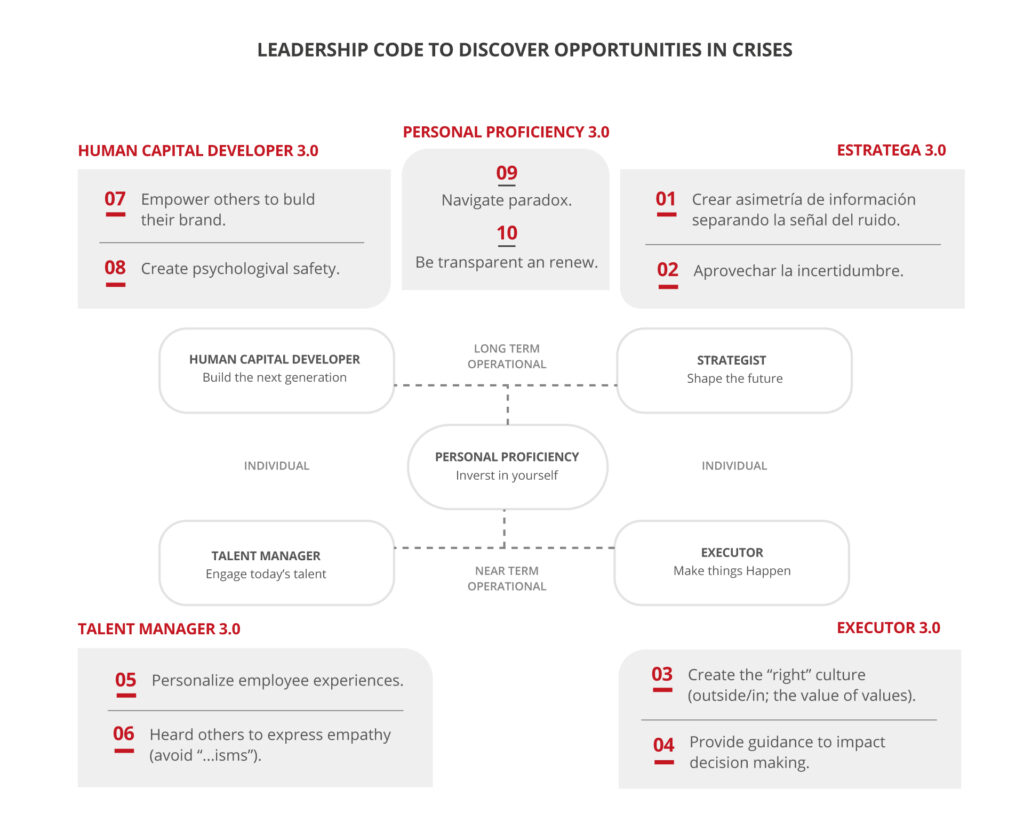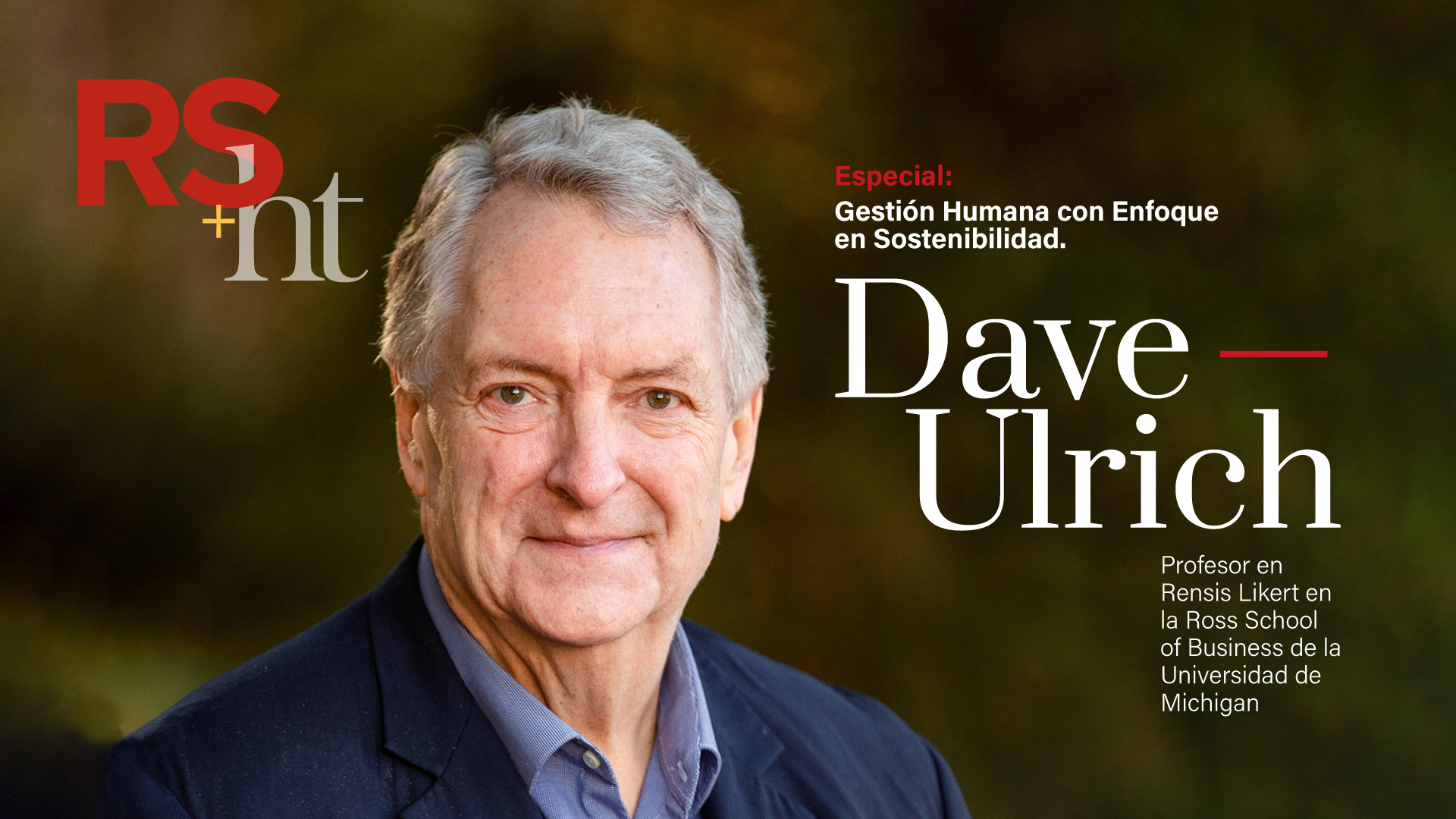How can take advantage of uncertainty and crisis, and twist that in favor of organizations and their employees?
Uncertainty is not a new concept and many terms have been used to characterize it: unpredictability, variety, inconsistency, ambiguity, incomprehensibility, complexity, disorder, unfamiliarity, and so forth. Harnessing means capturing energy (harness wind and solar energy or harness personal energy), protecting oneself for safety (wearing a harness in dangerous settings), focusing attention (using harnesses to control animals), and driving change (harness racing). Harnessing uncertainty means turning the threat of not knowing the future into opportunity by becoming more energized, psychologically safe, focused, and agile. If business and HR leaders can learn to harness uncertainty, they will help individuals and organizations prosper in the unknowable new normal.
How can we promote the adaptability of employees to the current context?
Individual agility or adaptabilityis the ability of people and leaders to learn and grow.
More agile individuals find personal well-being and deliver better business results.Individual agility is the competence of an employee to learn and grow (learning agility) as a leader or an employee. Learning agility has been found to be one of the key indicators of effective leadership, and individuals who cannot change as fast as their work demands have limited impact. Individual agility is a mindset (e.g., growth mindset, curiosity) and a set of skills (e.g., asking questions, taking appropriate risks). Therefore, individual agility comes in part from predisposition (nature)—which implies hiring individuals who are naturally agile (learn, change, and act quickly)—but can also be enhanced through training on asking questions, taking risks, experimenting with new ideas and actions, continuously improving by auditing what worked and what did not, observing others, embarking on stretch assignments, and so forth.
How can we make humanism prevail in organizations, taking into account that remote working has changed the way we do things, work, and communicate with each other in the business context?
Humanism comes from focusing on the person as embedded in emotion, empathy, engagement, and experience. These e words tend to show up with increased attention on affinity in relationships and in organizations.
When last year’s physical challenges came (and everyone has likely known someone who has physically suffered in this pandemic), the emotional needs of the afflicted and those associated with them mattered as much as physical needs. Organizations can or should become communities where employees find resources that provide personal emotional support.
Empathic leadership will hopefully be the new norm as leaders more fully listen to and hear their employees. With empathy, respecting differences is less an event (e.g., proclaim commitment to diversity) and more an ongoing habit.
Like others in the last year, I have engaged with family and friends through technology in more meaningful ways. I have been able to learn more about others when they share mementos from their personal space. Technology encourages social distancing but not necessarily isolation.
Technology encourages social distancing but not necessarily isolation.
Employee experience has become a critical element of the work experience as employees believe (find meaning), become (learn and grow), and belong (connect with others). Employee experience is a lead indicator of customer experience and investor confidence.
What characteristics should a leader have in 2021?
The concentrated challenges from the continual crises reveal new leadership insights that lead to being better leaders, building shared leadership, and creating a personal leadership brand. Let me propose Leadership Code 2.0 to capture 10 leader requirements for discovering and maximizing opportunities in crises.
The concentrated challenges from the continual crises reveal new leadership insights that lead to being better leaders, building shared leadership.
Leadership Code to Discover Opportunities in Crises

What are the challenges faced by Human Talent and Sustainability leaders and how to overcome them?
HR professionals get invited to business dialogues because they understand value creation, delivery, and capture from the outside-in. Once invited to business conversations, HR participates by offering unique contributions in the human capital areas of talent, organization, and leadership. These three areas of contribution are not new, but they are even more critical in responding to current challenges and discovering future opportunities.
First, talent. Traditionally, HR offered unique insights around individual competence (called workforce, skills, talent, or people). HR’s legacy has been to fight the war for talent and focus on ensuring that employees have the competencies (right job, right place, right time), high commitment (employee value proposition), and contribution (a positive employee experience).
Second, organization. HR also offers unique insights about organization capabilities (called workplace, culture, or process). Our research (The RBL Group and University of Michigan) found that the capabilities of an organization have four times the impact on business results than the competence of individuals. HR professionals engage leadership teams in defining and embedding the right organization capabilities such as agility, external sensing, innovation, collaboration, or efficiency.
Third, leadership. Talent and organization are shaped and driven by leaders. Employees (individual competencies) often mimic what their leaders do, and organization capabilities often reflect leaders’ personalities. More importantly, leadership at all levels of the organization signals thoughts and actions that get attention. Again, defining effective leadership may be done with customers in mind (Leadership Brand work) and with investor impact (Leadership Capital Index work).
What advice do you give business leaders who don’t yet understand the importance of implementing sustainability-focused work practices?
Leaders and HR professionals need to be socially accountable for how their organizations respond to business challenges. Organizations need to be good citizens, not only of their country but the planet. Leaders and organizations need to accept stewardship to not only make money but to create meaning; to balance profit and planet; to do well and to do good; to give today’s employees a positive experience at work and to create opportunity for tomorrow’s employees. We have called this emerging agenda social citizen stewardship as a way to capture HR’s contribution to the community stakeholder.


